On June 22, 2023, the Faculty of Fisheries, Vietnam National University of Agriculture (VNUA), in collaboration with experts at the French Agricultural Research and International Cooperation Organization (CIRAD) successfully organized an international conference with the theme “Fish farming in urban and peri-urban areas: Assessing and preventing the risks of contaminants”. The workshop was chaired by Assoc. Dr. Truong Dinh Hoai, Vice Dean of Faculty of Fisheries, VNUA.
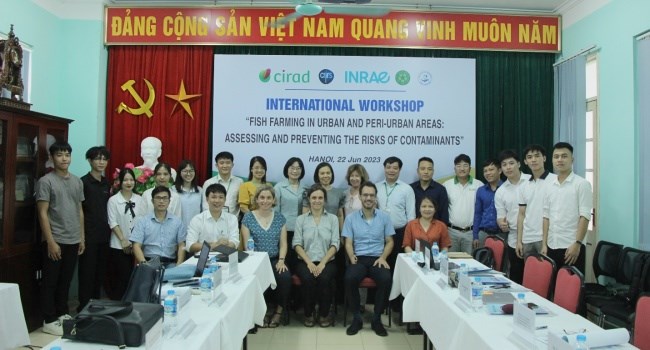
Overview of the workshop held at the Faculty of Fisheries, VNUA on June 22, 2023
Attending the workshop were experts from the French Agricultural Research Centre for International Development (CIRAD), the French National Center for Scientific Research (CNRS), and the French National Research Institute of Agriculture, Food and Environment (INRAE); environmental experts from Water Resources University, Hanoi University of Science and Technology, and VNUA; representatives of the Office of Animal Health and Fisheries, Department of Animal Health; Hanoi Fisheries Sub-Department; representatives of some fish farming households in Hanoi and surrounding areas; as well as staff, lecturers and students of the Faculty of Fisheries, VNUA.
The workshop included presentations on fish farming in Hanoi and surrounding areas, advantages and challenges of cage culture in the North, disease situation and health management in tilapia, survey results on water quality and pollutants in rivers and lakes in Hanoi and surrounding areas, and application of DNA fragmentation technology to assess the quality of fish meat. The shared experiences in assessment and prevention of risks in aquaculture in urban and peri-urban areas to improve the quality of aquatic products.
According to Dr. Gwenn Pulliat, project manager for Street Food Project (2019-2023) in Vietnam, fish farmed in Hanoi and the surrounding areas was exposed to a number of contaminants, which could affect meat quality of fish used for food. Among the environmental pollutants, many could have cytotoxic effects on aquatic species, directly or indirectly affecting the integrity of a cell's genetic material (DNA). Therefore, it was possible to apply DNA damage analysis to assess the impact of the environment on the health, quality of fish and the ecological environment of the farming area.
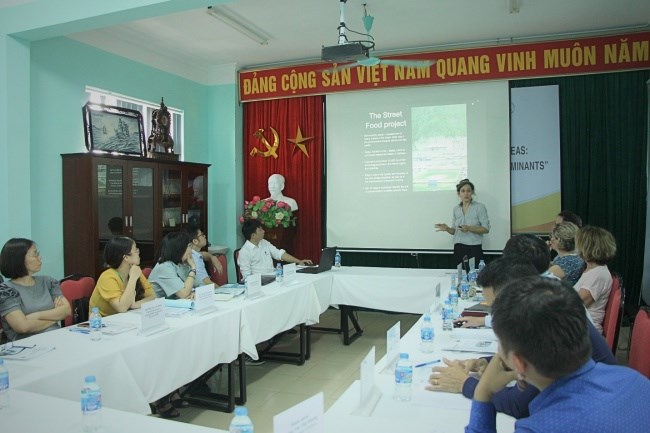
Dr. Gwenn Pulliat introduces Street Food project
Also in the workshop, Assoc. Prof. Dr. Truong Dinh Hoai, leader of VNUA’s Strong Research Group on Aquatic Diseases, discussed the epidemic situation in aquatic animals. Assoc. Prof. Dr. Truong Dinh Hoai said that tilapia production had increased rapidly, but the increasing stocking density in intensive farming methods was likely to increase the risk of disease outbreaks, especially emerging and dangerous diseases. In addition, the overuse of antibiotics and chemicals in disease prevention and treatment had been causing drug resistance, leading to increasingly difficult disease prevention and treatment in aquatic animals. The risk of residues, food safety and environmental pollution were, therefore, increasingly concerned.
At the end of the workshop, the experts had open discussions and exchanges to open up new research directions in the coming time to help develop urban and peri-urban fisheries towards improving the quality of aquatic products and sustainable development.
Some photos of the workshop
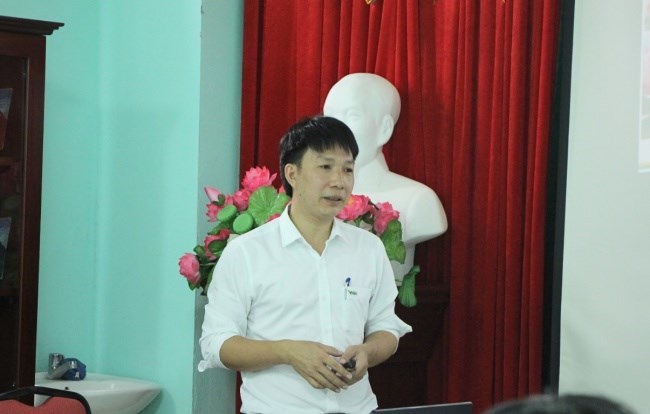
Assoc. Prof. Dr. Truong Dinh Hoai, Vice Dean of Faculty of Fisheries, Head of Research Group on Aquatic Diseases, VNUA, gives a presention at the workshop
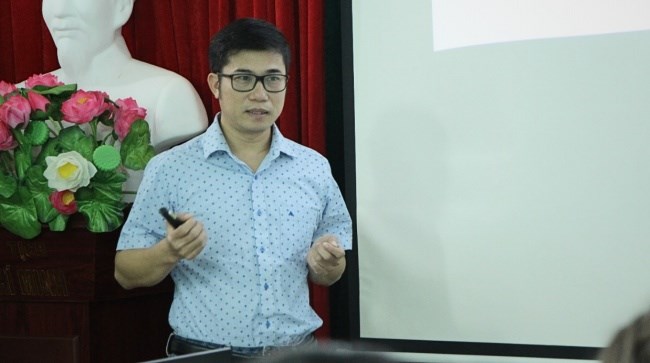
Dr. Doan Quoc Khanh gives the presentation on "Application of round cages in tilapia farming in the North of Vietnam: Opportunities and challenges"
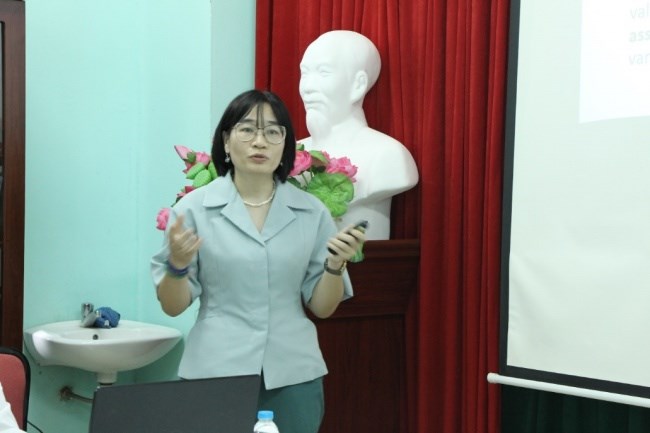
“Development of a biomolecular model to calculate acute lead toxicity for Moina dubia in the lakes of Hanoi, Vietnam” presented by Dr. Pham Thi Hong, Lecturer at the University of Water Resources, Vietnam
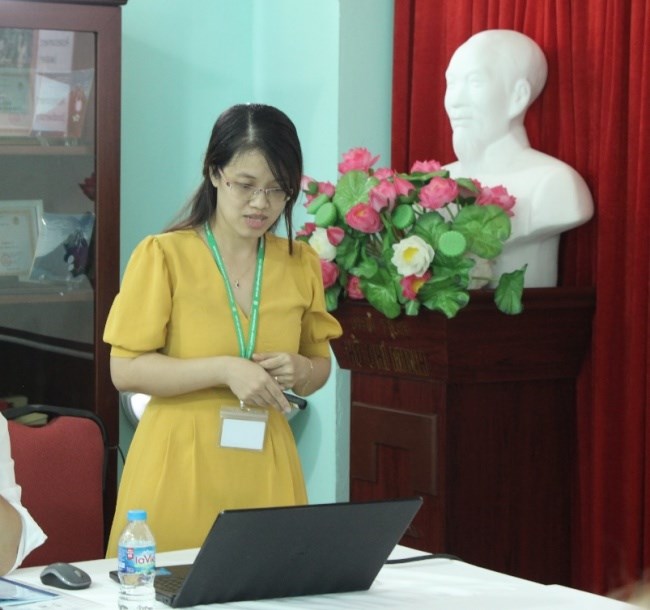
Ms. Nguyen Thi Thu Ha, a lecturer of Faculty of Natural Resources and Environment, VNUA, gives a presentation entitled "Using water quality index and community structure to warn ecological risks in Dong Mo and Xuan Khanh reservoirs".

Dr. Elodie Pepey (CIRAD) reports on the results of DNA fragmentation on tilapia in Hanoi and its vicinity.
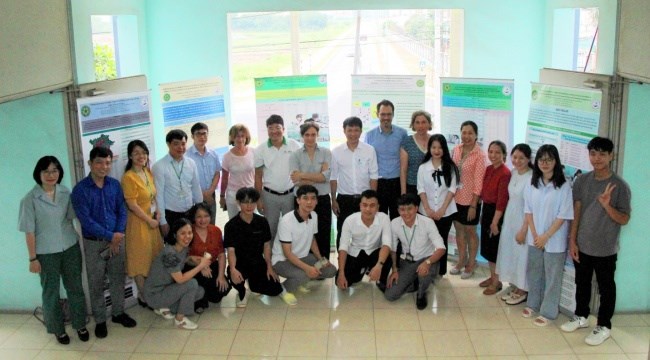
Delegates attending the workshop listen to the poster presentation
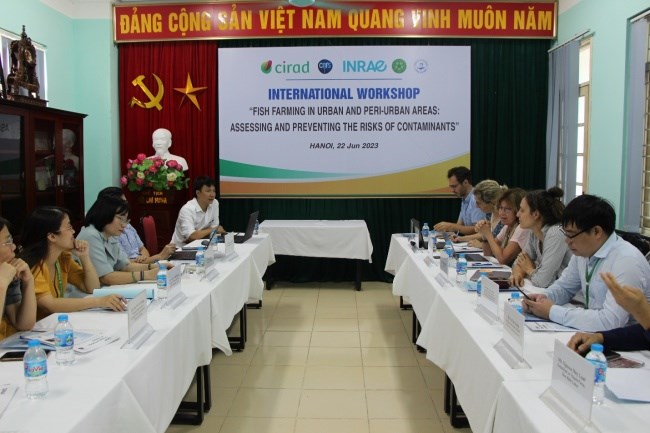
Guest experts exchange and discuss at the workshop